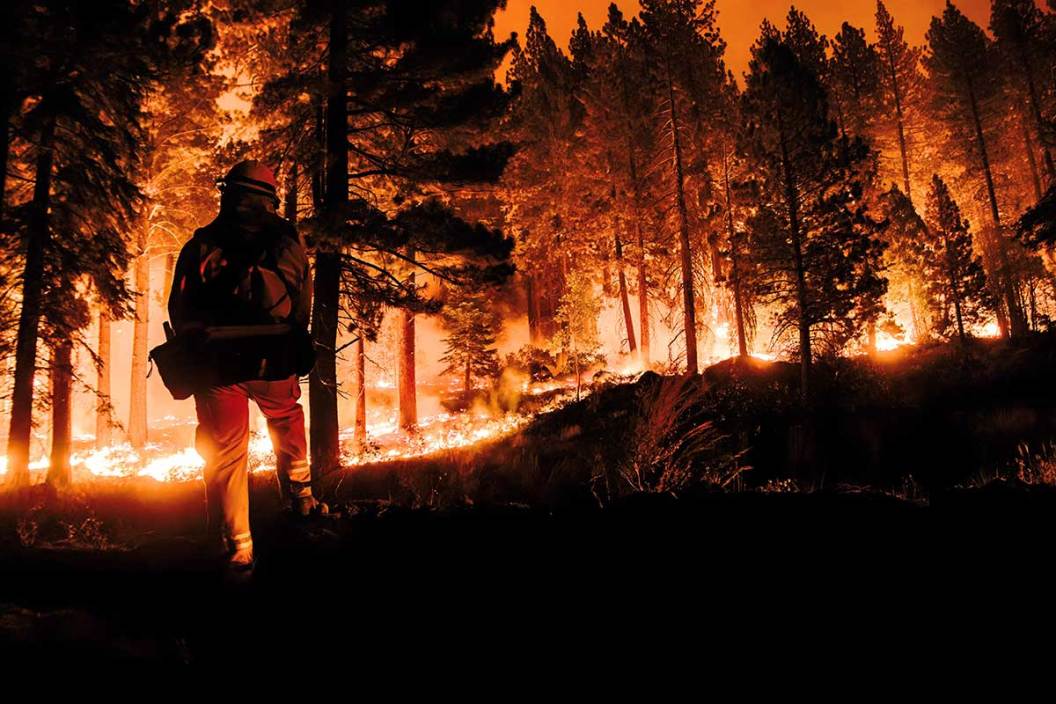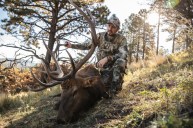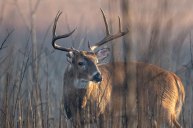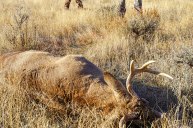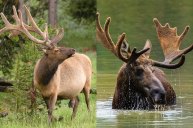Western wildfire season can have both an adverse effect and be a natural part of the landscape. Here's what it means to us outdoorsmen.
Wildfires traditionally run from about May through the month of October, but wildfire season seems to have no start or end date anymore. With drought only being a part of the problem, strong winds, high heat, low humidity, and even lightning can create the harsh conditions needed for wildfires to more easily start or spread.
The National Interagency Fire Center (NIFC) reports regularly about the national preparedness level as it pertains to wildfires across the country. As recently as July 18, 2021 the NIFC reported that "Eighty wildfires have burned 1,157,976 acres in 13 states."
Questions about global warming and the climate change that it creates are one part of the equation, but for sportsmen and women it still means that we need to look at it honestly in the sense of the issues it creates for the outdoor community:
- Does it kill many animals?
- Will hunting seasons be closed?
- How will it affect campers, hikers, and other like-minded outdoor enthusiasts?
These are just a very few of the questions related to our outdoor activities. To some, it may mean a bit of a selfish attitude since it is recreation that we have in mind, but to others whose livelihoods depend on outdoorsmen, it can be the difference between making a living and scraping to get by.
While it may seem limited to the western states, the reality is that wildfires can pop up anywhere where the conditions are right, including well into Canada. 2020 was a very difficult year for wildfires in the US with over 10-million acres burned; California being particularly hard hit.
Negative Effects

Ty O'Neil/SOPA Images/LightRocket via Getty Images
Certainly homes are in danger of destruction, but it can be the livestock, plant life, and wild animals that take the hardest hit. Those in California and Oregon know that recent years have been ultra tough on the landscape of their respective states, including their wild animal populations.
Wildfires and forest fires aren't just limited to these particular states, but can reach as far south as Arizona and New Mexico, and as far north as Alaska. Obviously wildlife will need to move to avoid fire and heat, giving them an overabundant sense of fear and danger. Animals that cannot avoid the dangers or take some form of shelter will die.
Wildfires also destroy much of their food sources by causing long term or permanent loss of native plants. This can have a bigger effect on the larger creatures such as deer and elk, and predators like wolves and bears as you move up the food chain.
Besides the leftover scorched earth and poor air quality conditions it leaves behind, a wildfire can cause longterm issues. Forest fires can set up the potential for erosion and the loss of topsoil in some areas. They can lead to the disappearance of plant and animal species from certain areas. And they can cause closures and accessibility issues due to safety concerns for outdoorsmen and women.
Positive Effects
There are definitely detriments, but also some good things about wildfires and their effect on the environment. The idea that the older, larger plants and trees that have served their purpose are wiped away to make room for new, younger plant life to emerge and thrive isn't all that unknown. A similar argument could be made regarding animals, in that the strong individuals that do survive will then pass on those genes to further generations and strengthen the overall health of the animal group in that area.
There are other benefits, too. In some areas the massive heat form a wildfire warms the soil enough to start cracking seed coats and triggering germination, which encourages new growth and in turn provides food for more animals. Natural, low-intensity wildfires that occur regularly burn up fuel such as plant debris, dead trees, and other decrepit flora.
Forest fires also help to kill off diseased trees and other plants, often time wiping out invasive species and even destructive native species such as the mountain pine beetle. Wildfires can refresh a habitat by providing fresh nutrients for new growth, which can have the added effect of drawing wildlife to areas. Trees with extensive roots systems typically regenerate after fire, and there are even some plants that require fire to reproduce and grow to their fullest.
Can Wildfires Affect Fish?
According to the U.S. Geological Survey, (USGS) "Runoff from burned areas contains ash, which may have significant effects on the chemistry of receiving waters such as lakes, wetlands, reservoirs, rivers and creeks. Runoff from burned areas also produces higher nitrate, organic carbon, and sediment levels, warmer temperatures, and flashier streamflows."
As you can imagine, these negative effects are acerbated by the fact that some wildfires can cause water temperatures to rise to intolerable levels, causing fish die-offs. Where salmon are concerned, fire may lead to temporary increases in fine sediment in spawning streams, which in turn can undercut egg and fry habitat during the short term.
As the Center for Watershed Protection states, "Wildfires can have immediate and long term effects on rivers, lakes, and streams. After burning vegetation, the ground's soil becomes hydrophobic and is unable to absorb any water. These (ensuing) floods introduce heavy metals from ash and soil into waterways. They destroy underwater vegetation and force marine life to relocate."
Simply put, fish well-being can definitely be impacted by a wildfire.
What About Public Land Access?
Public land is used for a lot of different purposes. This runs across a broad spectrum that we can all agree affects nearly everyone at some point. Campers, off-road enthusiasts, hikers, fishermen, and especially hunters can really feel the loss of land use during and after a wildfire.
All out closures can increase activity in other nearby areas, making it hard to get away from other campers, anglers, or hunters.
Though situations always vary, a severe wildfire could potentially close large plots of public land for years.
Looking at Fire Season Through Outdoor Eyes
Droughts, heat waves, and other fire-feeding conditions in the west have given the Department of Forestry and Fire Protection a lot to deal with. California's wildfires alone damaged so many acres of public and private land that it may take many years to recover.
The way we look at these issues through the eyes of outdoorsmen can be similar to the way the Forest Service views it. To an extent, it's a necessary thing to help rejuvenate a forest or wild area and promote its well-being long term. On the other hand, it takes a lot to properly manage, it can destroy property, and there isn't always a deliberate, controlled start and end to the fire. If a wildfire starts because of a neglected campfire, a tossed cigarette, or some other human error, then it's past the time to address the need for awareness and responsibility.
Do your part to prevent any accidents, and keep a steady mind regarding wildfires.
Looking for a new way to display those antler sheds? Go to Rack Hub and use the coupon code Craiger. Be sure to follow my webpage, or on Facebook and YouTube.
Products featured on Wide Open Spaces are independently selected by our editors. However, when you buy something through our links, we may earn a commission.
NEXT: THE "STAYIN' ALIVE" SURVIVAL BANDANA IS A CHEAP AND USEFUL EMERGENCY TOOL
